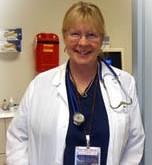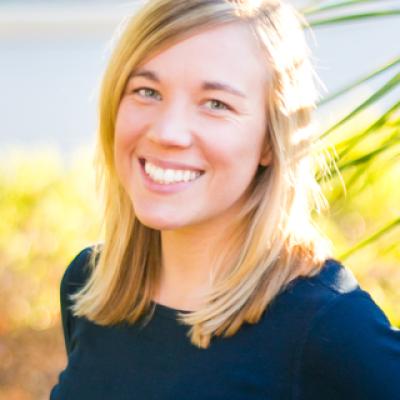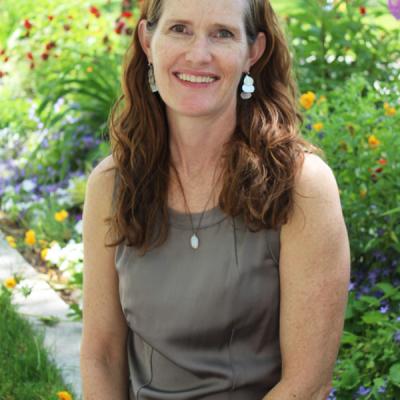Trade-Offs
From the interviews our team conducted, we quickly found a common pattern between: All women have had to make trade-offs between work and life in order to balance the two.
In the interview with Dr. Kirtly Parker Jones, she described how she and her husband, who was also a physician, took turns picking where to go next for work or for school. Dr. Jones also discussed how you can't do it all when you have research, clinicals, teaching, etc. That being said, Dr. Jones is grateful to have her husband, who helps take care of some things at home to better balance work and life for their family
“After the first third of my career- it's my husband who is hanging things up, he's been moving snow off our solar panels, so he’s- I think for me, and if you've got teaching and research and clinical care, you can't really do all of them equally.”
Amy Sibul also conveyed similar experiences in her interview. She describes her experience of making trade-offs, saying,
"I never felt completely disengaged from science as a mother, even though I wasn't a scientist for a chunk of that time. And I was fully comfortable with that and I know that some of the other women who I absolutely respect and am impressed by, especially in the school of biology or school of biological scientists, didn't have that same experience."
Of our interviewees—Kirtly Parker Jones, Amy Sibul, Lisa Diamond, and Cynthia Burrows—it is important to note that not all women have made the same amount of trade-offs. Lisa Diamond does not have any children, so she makes work her number one priority. Amy Sibul puts her family first, while focusing primarily on teaching instead of research.
Kirtly Parker Jones, Cynthia Burrows, and Amy Sibul all have children and they have all made trade-offs throughout their career to balance their families with their work. In Obstetrics and Gynecology, Keeton et al. write, "burnout is an important predictor of career satisfaction, and control over schedule and work hours are the most important predictors of work–life balance and burnout." Doctors Jones, Sibul, and Burrows made conscietious choices to focus on some things over others, such as teaching instead of research (in Dr. Sibul's case), to balance family life with work life. This is especially important for women in science, and having triplets is one thing, but having triplets and being a scientist is another thing. Dr. Cynthia Burrows talked about balancing her triplets with her work; she would let her husband take the lead on activities with the kids; she couldn't be there for everything all the time. That is part of the trade-off.
Kristina Feldman also added her insight reflecting on the difficult trade-offs women often face when balancing career aspirations with the desire to have a family.
"So what I liked about the psychology degree or graduate program was that I had multiple options, which again, given my life, I was like, you know, I'd seen what happens if you need to change careers in your life. So I really wanted to make sure I had options for that. But at the same time, I also wanted the option of like, if I had kids one day, what would that look like and how would they fit into my life and everything. I could make different schedules and everything like that, right? A teaching career can be really beneficial sometimes if you have little kids. It's very busy, but those hours really tend to be, you know, during college course time, right? So there's some flexibility there. I liked that there were options and I found it interesting as well. That junior year I was like, this is what I want."
Hisotrically, this trade-off has shaped the trajectories of women in STEM. Mileva Einstein, for instance, put aside her sicentific ambitions to raise her family, while her husband Albert advanced their shared work and recieved recognition. Conversly, Marie Curie's groundbreaking achievements were made possible by the support of her father-in-law, who heled care for her children. This additional support enabled Curie to focus on her career without the full burden of caregiving, a luxury not all women have. These examples highlight how the availability or absence of support systems can dictate the extent to which women can balance their careers and personal lives. Feldman's reflections and these historical cases illustrate the constant trade-offs women often navigate.
Stepping Back
There are points in scientists' careers when it is time to step back. The four professors we interviewed all discussed their experiences with this.
“In some jobs, you need to step away for young people to rise.” -Kirtly Parker Jones, PhD
From the interviews, it can be noted that stepping back means different things at different times in one's career. For example, Dr. Amy Sibul had to say no when her kids were younger, but plans to do more once they are out of the house:
“I say I'm married to someone whose career is number one, so he's always able to say yes to work, and work late, and do the traveling, even when the children were very young and in high need. So he climbed the rungs of his professional ladder, while I opted to say 'nope I want to stay this run' because I'm going to say yes more often to my family than I'm going to say to work; and that's a hard balance. I do like this idea that you can have it all, but you can't have it all at the same time. And with my youngest daughter graduating from high school this fall and, you know, going on to college next year I do anticipate being able to invest more in my career, and I have plenty of years left to do that, so I think things will shift for me now and I'm ready for that."
As for Kirtly Parker Jones, M.D., who is a recently retired gynecologist, she explains how she now has leisure time that was almost foreign to her before. "I have never had time to garden all my career, but now I have a little garden and I’ve grown vegetables. . . I love to watch things grow. It’s just wonderful," says Jones. She also plans to be a volunteeer vaccinator in the midst of the current COVID-19 pandemic.
When Jones first stepped back, she started with cutting back on performing surgeries, giving newer doctors a chance to grow, which is very inspiring: knowing when it's the right time to step down so others can step up.
Cynthia Burrows, PhD explains that living in Utah helps her enjoy her leisure time and better balance work with life.
“There's a good reason for me being in Utah. I grew up in Colorado and have an affinity for the Mountain West. So being here helps me with my work-life balance. That includes a lot of mountain and desert activities.”
Similarly, Ashley Hechler, DVM, MS DACVS shares how she navigates the work-life balance by dedicating time to her hobbies, which help her decompress and recharge. She emphasizes the importance of finding activities that work for each individual, explaining:
"It's honestly just a high stress specialty or just a job in general. And so just making sure you're finding time to decompress and do things that work for you and everyone's going to have different things. And for me, it's, you know, being outside and doing different sporting things outside. So in the winter, I'm going to be skiing every weekend. I just need to get out, get that fresh air. And in the summer, I'm paddle boarding or hiking. And so it just like. Being outside clears my head and that's what works for me. So I make sure I do that. But everyone's kind of different. And so if it's just finding what works for you to let you decompress."
Page researched and written by Elsa Osborne, Megan Luetchford, and Ryan Steffen
Later edited by Pamalatera C. Fenn



